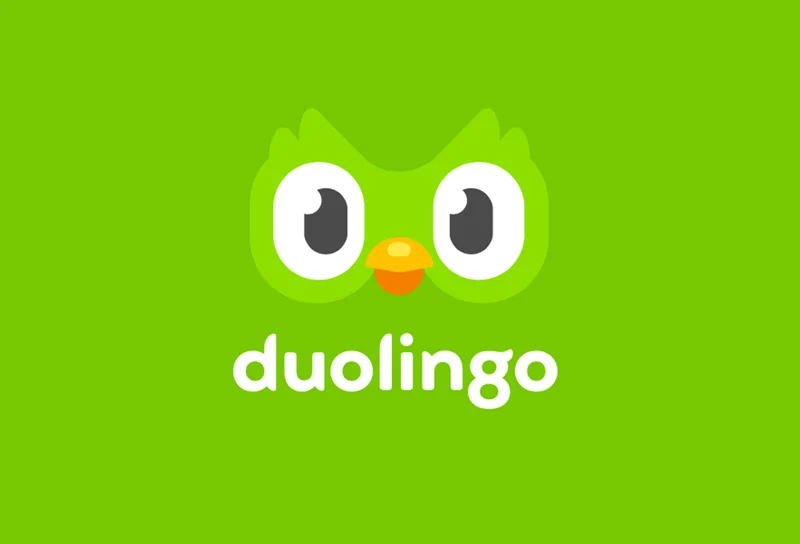Duolingo's Stock Drop: What Happened and What It Signals
Title: Duolingo's Stock Drop: A Temporary Setback or AI-Fueled Opportunity?
Okay, let's dive into this Duolingo situation. Everyone's buzzing about the stock taking a nosedive after Q3 earnings, and yeah, headlines are screaming about cautious guidance and investor jitters. But honestly? I think everyone's missing the bigger picture here, the real story simmering beneath the surface. This isn't just about one quarter's worth of numbers; it's about the dawn of AI-powered education, and Duolingo is sitting right at the epicenter.
Seeing Past the Short-Term Noise
So, what exactly happened? Duolingo reported solid sales growth, beat revenue expectations, and showed they're still pulling in paying users. Engagement is up, subscribers are climbing – all good signs, right? But then, the company's forward guidance spooked investors, leading to that sharp 19% stock drop. The market, it seems, is a fickle beast, especially when it comes to tech stocks teetering on the edge of AI integration. Duolingo Q3 Earnings: Solid Sales Growth, Sharp 19% Stock Drop Follows
But here's the thing: Wall Street's often myopic. They're obsessed with short-term gains, quarterly reports, and immediate gratification. They want instant results, predictable bookings, and guaranteed returns. But innovation? Real, transformative innovation? That rarely follows a straight line. It's messy, unpredictable, and requires vision.
Think about the printing press. When Gutenberg first started cranking out books, did everyone immediately understand the seismic shift that was about to occur? Did investors line up to fund his every move? Probably not! People were probably scared! They were used to things being a certain way. It took time for the world to grasp the power of mass communication, the democratization of knowledge, and the profound impact it would have on society. What if Duolingo is the printing press of the 21st century?
Duolingo is sitting on a goldmine of user data and engagement. They're actively investing in AI-driven features, personalization, and adaptive learning. This isn't just about gamifying language lessons; it's about creating a truly personalized educational experience, tailored to each individual learner's needs and goals.
And that's where the real opportunity lies. If Duolingo can successfully leverage AI to create a more engaging, effective, and personalized learning experience, they're not just going to attract more subscribers; they're going to revolutionize the way we learn.

The key, of course, is execution. Can Duolingo convert that increased engagement into long-term subscriptions and higher lifetime value per user? Can they keep their marketing costs in check while scaling their AI-powered platform? These are legitimate questions, and the market is right to demand answers. But I think the market is underestimating Duolingo's potential.
I saw one analyst note that said, "strong current results are necessary, but not sufficient." And yeah, that's true. But what's sufficient is a clear path to sustainable margins and predictable bookings. The thing is, predicting the future of AI-driven learning is anything but predictable. And I think that is what is scaring people.
The CEO even did a video interview to try and calm everyone down. I watched it, and it made me feel more confident in their approach, honestly.
What does this mean for us? What does this mean for you? Imagine a world where learning a new language is as easy and accessible as playing a game on your phone. Imagine a world where education is personalized, adaptive, and tailored to your individual needs. Imagine a world where language barriers are broken down, and people from all corners of the globe can communicate and connect with one another.
That's the vision that Duolingo is pursuing, and that's why I'm so excited about their potential. The stock drop? That's just a temporary setback, a bump in the road on the path to something truly extraordinary.
Of course, with great power comes great responsibility. As we integrate AI into education, we need to be mindful of the ethical implications. We need to ensure that AI is used to enhance human learning, not to replace it. We need to be aware of potential biases in algorithms and data, and we need to strive for fairness and equity in access to AI-powered education.
The Future is Brighter Than the Headlines Suggest
Ultimately, Duolingo's Q3 stumble is a reminder that innovation is rarely a smooth ride. But it's also an opportunity to zoom out, look beyond the short-term noise, and see the bigger picture. Duolingo isn't just a language learning app; it's a pioneer in the AI-powered education revolution. And that's a revolution worth betting on.
Tags: duolingo stock
AI's "Win" and Paywalled Data: What's the Real Deal?
Next PostBlockchain: Chainlink, Nigeria, and Bitcoin Whale Activity – What We Know
Related Articles
